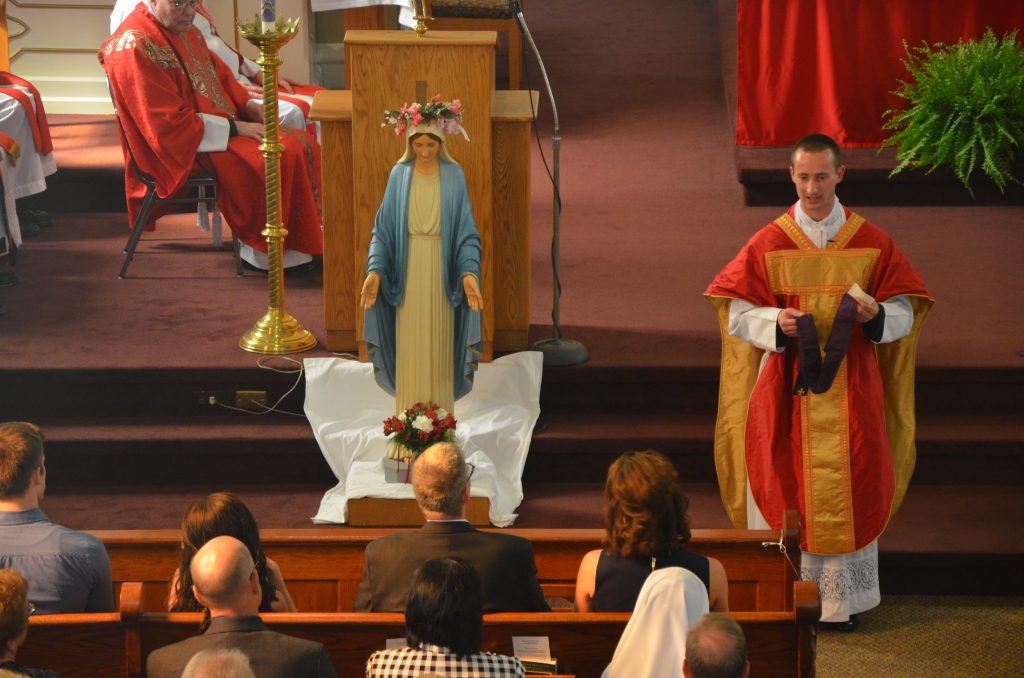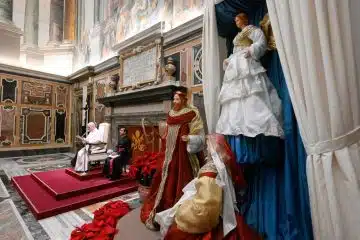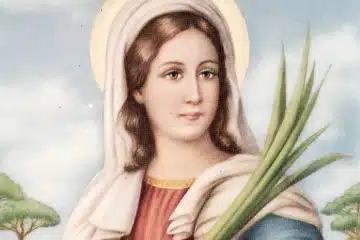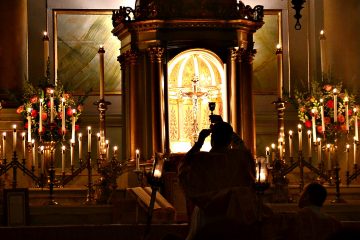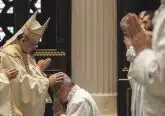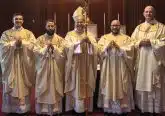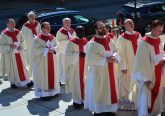Ordination Traditions
Explore the traditions of this joyous time in pictures
This article first appeared online in May 2018.
Tradition of the first blessing
Waiting to receive a blessing from a new priest is a longstanding ordination day tradition. After Mass, the new priests are greeted by their former seminary classmates, who kneel for blessings.
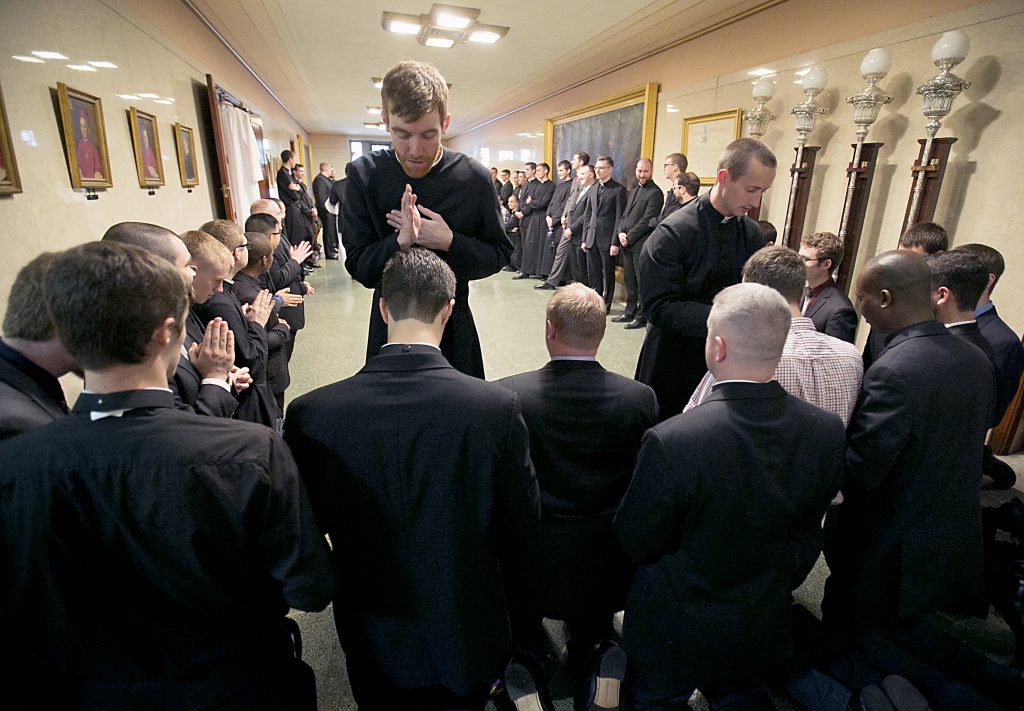
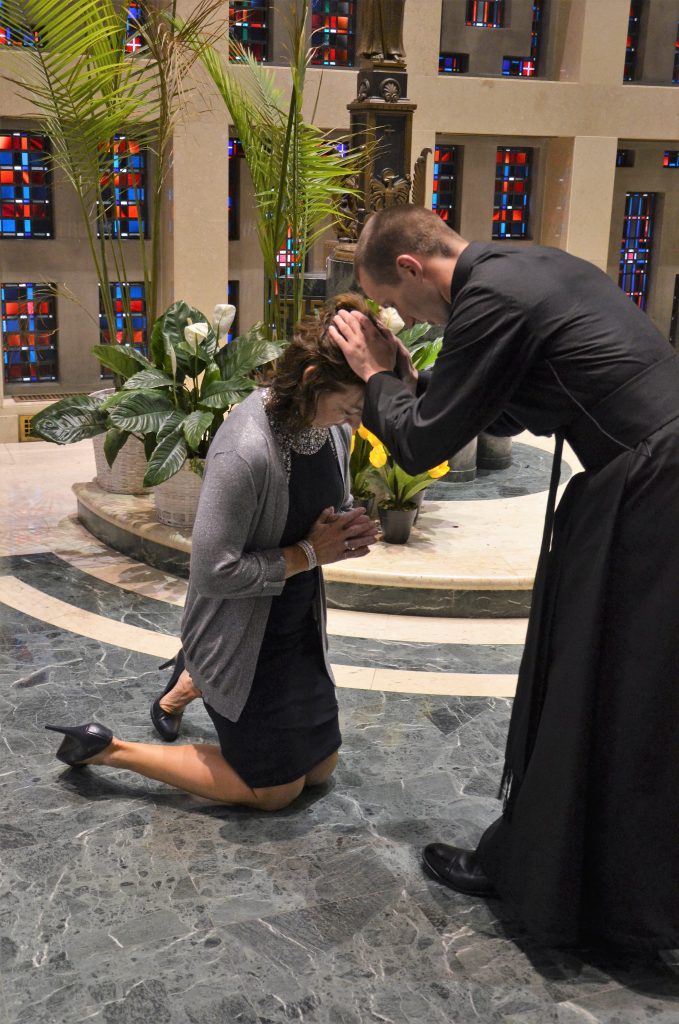
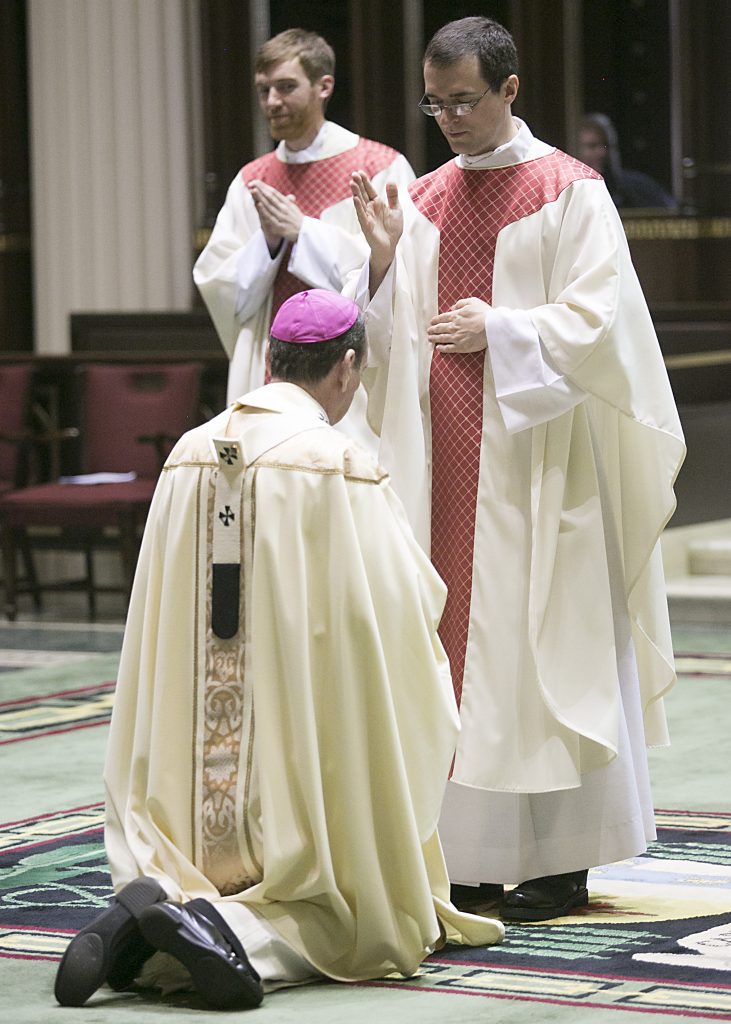
Tradition of the manutergium
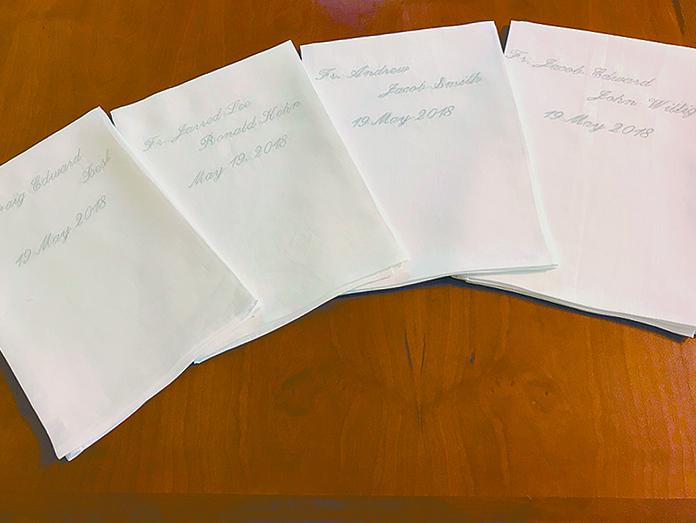
The cloth a priest uses to wipe the blessed chrism from his hands after being ordained is called the manutergium, and represents the burial cloth of Christ. According to a tradition many dioceses are reviving, priests present the manutergia to their mothers at their first Masses. The women are buried holding them, so that at the Last Judgment everyone on Heaven and Earth will know they are the mothers of priests and can present the cloths to Christ, saying, “my son, too, shared in your priesthood.” The manutergia for the Archdiocese of Cincinnati are made by vestment maker and seminary volunteer Jaqueline Kaiser, who embroiders each with the name of the priest.
Tradition of the first Mass
A new priest’s first time presiding at Mass usually takes place at his home parish on the day after his ordination. It’s often especially elaborate, because priest friends and mentors, seminary companions, and parish servers are eager to take part, and parishioners, family, and friends want to be present for the historic day. This year, the day after ordination was Pentecost, one of the church’s greatest feast days, adding the splendor of red vestments, special music, and the annual sequence “Come, Holy Spirit” (Veni, Sancte Spiritus) to the celebration.
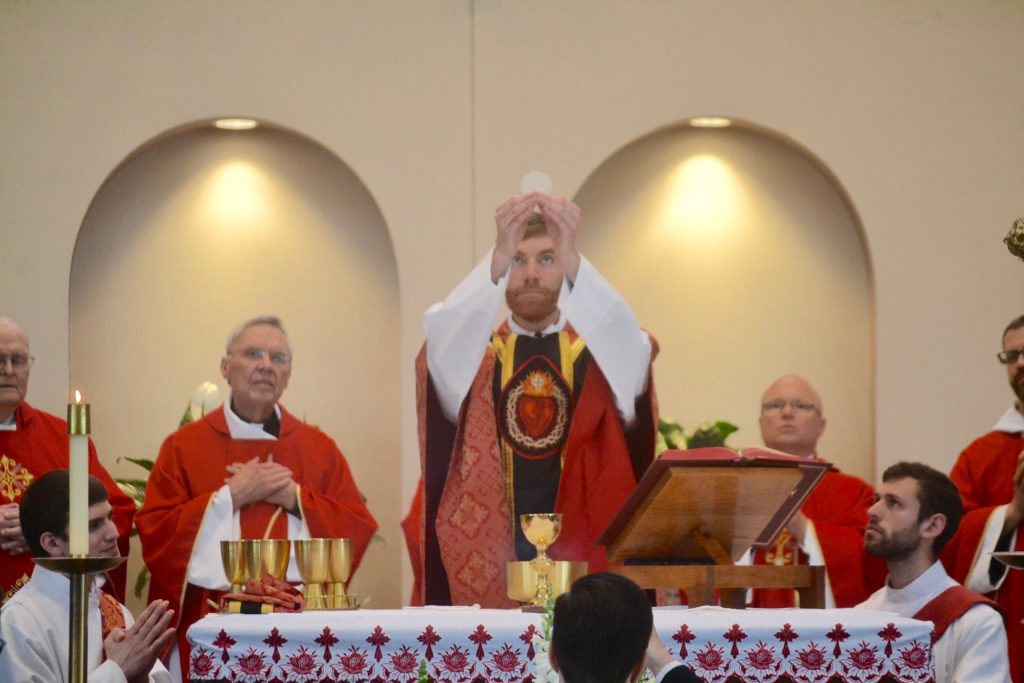
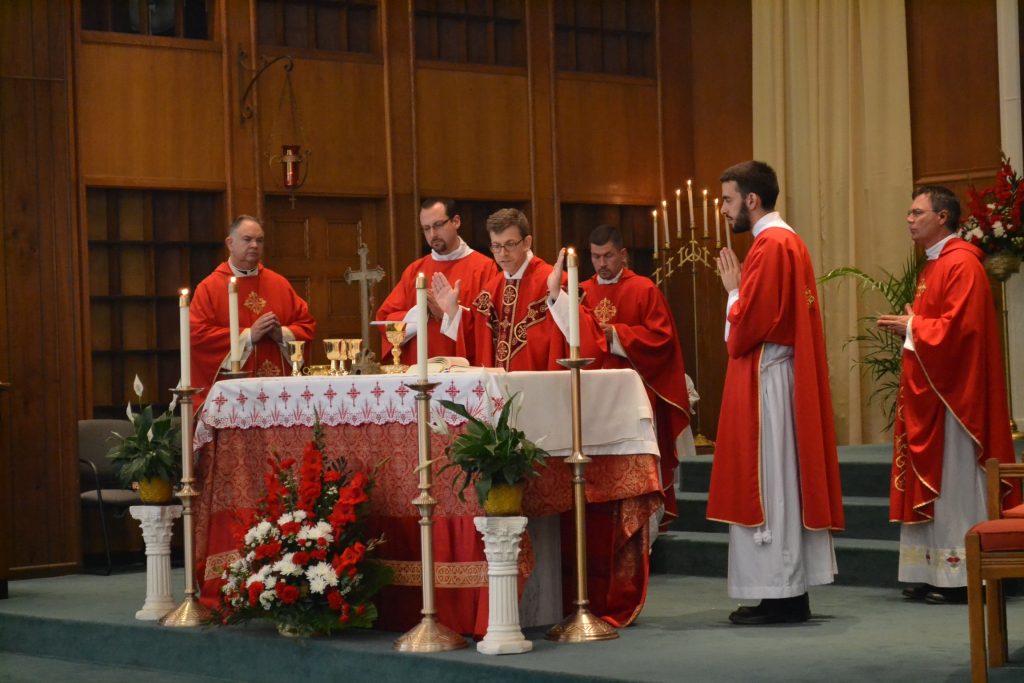
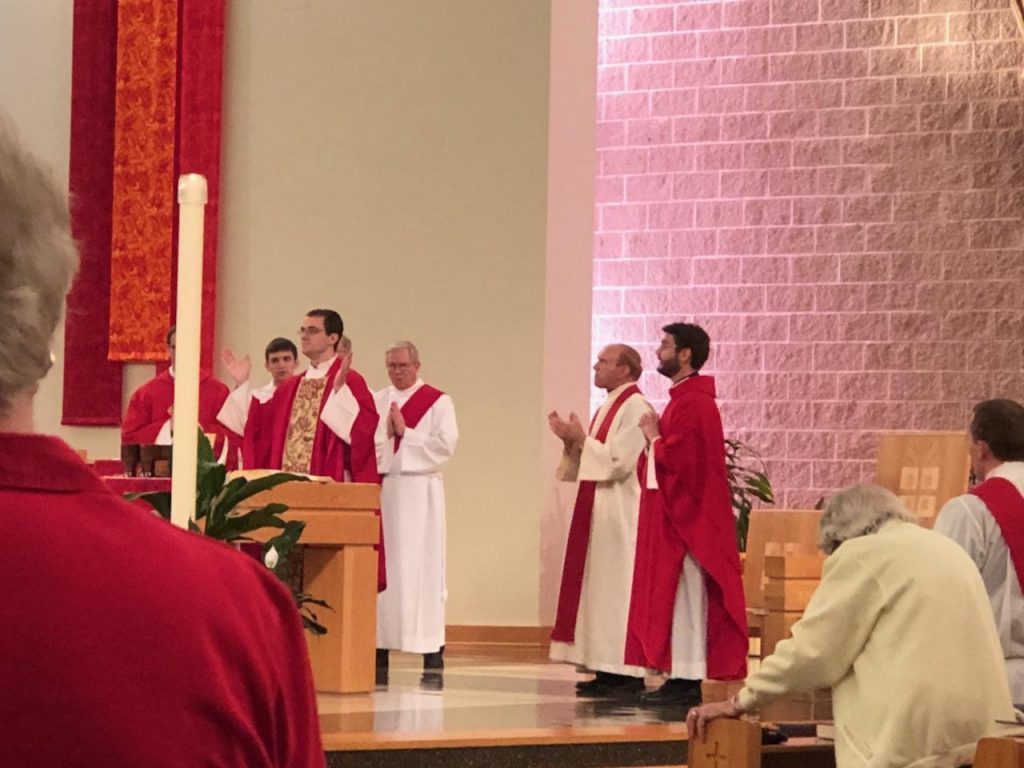
Tradition of the first confessional stole
In another tradition being revived around the country, at his first Mass a new priest gives his father the stole he wore to hear his first confession. During the sacrament of penance the penitent receives God’s justice, mercy, and reconciling love. Because a priest first learns about mercy and justice from his father, the gift is an appropriate one. According to this tradition, priests’ fathers are buried holding the purple stoles, and when raised on the last day can present them to Christ and say, “my son, too, shared in Your priesthood.”
